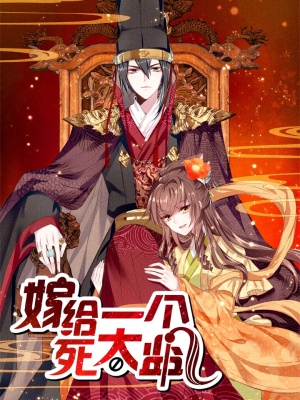Chen Hui had traveled through the passage of time, but – when she woke up, there wasn’t even a single female servant surrounding her who exclaimed her return to consciousness. Instead, the only person standing in front of her was an exasperating eunuch who pinned her with a malicious glare whilst remarking sarcastically, “Since Lady Chen despises and shuns lowly eunuchs such as myself, I won’t force myself upon you. But, if you’re hoping for me to release and return you back to your family, then my only advice is for you to give up all such hopes! You will never be able to leave my household for the rest of your life, so you have little choice but to stay here till you die!”
Chen Hui: ??? [Insert Nick Young Confused Face Meme]
It turns out, that Chen Hui had time traveled, and awoken in the body of a lady who had attempted to commit suicide (by ramming her head against the pillar) to display her staunch refusal to marry an exasperating eunuch. However, in order to fill her belly full and keep her body warm, Chen Hui had no choice but to continuously think of different ways and means to approach the exasperating eunuch, to get to know more about the exasperating eunuch, to please and bootlick the exasperating eunuch, and to seduce… No, wait, forget about seducing that exasperating eunuch. = =|||( ⊙ o ⊙ )
The eunuch Li Youde had spent his entire life being a callous, deceitful, and sly person. Never in his wildest dreams did he think that all he could think about during his most desperate hour was – how the mischievous, pampered, trouble-making enchantress at home would be able to continue living a worry-free and comfortable life without him by her side.
[Ebook][Manhua][Audiobook][Gả Cho Một Tên Thái Giám Đáng Ghét][Eng Translation]


Can someone give me a summary?
It’s not the first time that I’m attempting a novel set in the ancient times, and with time travel elements involved; but it is the first time I’m reading a novel with an eunuch as the male lead – and, to top things off, a selfish, sensitive, corrupt(?), callous and dramatic eunuch to boot! With such an unlikable, self-pitying male lead, it is little wonder that we need someone like our female lead – Chen Hui (the epitome of a broad-minded, big-hearted modern girl with an optimistic outlook on life) – to truly bring him out of his self-pity, and shower him with such genuine love that he gradually learns to believe, and trust, that there are people in this world who would be able to love him for who he truly is (despite him being an “incomplete” man).
The novel is generally well paced, with both our leads gradually developing feelings for each other, struggling with the acceptance of such feelings, and finally, coming to terms with, their feelings for each other. Their relationship starts out on a hilarious note – with the male lead contemptuous and hateful of the female lead (after all, the original Chen Hui had attempted to commit suicide out of sheer desperation (as she did not want to spend the remainder of her life with an eunuch)), whilst our modern Chen Hui is solely focused on appeasing the male lead in order to survive in his household. Our female lead, having come from the modern times, does not possess the shy / reserved nature typically expected of ladies during the ancient times; her bold, brash nature eventually helps her to worm her way into our male lead’s good books, and they gradually develop a cordial, and fun-filled relationship. The main sticking point / obstacle in their relationship is the male lead’s inability to accept, or understand, how a normal lady like Chen Hui would be so ready, and so willing, to live the remainder of her life with a “disabled / crippled” man like him – and as such, he is unable to bring himself to truly believe in her feelings for him, and is simply content to believe in her “facade” of love.
The breakthrough in their relationship (when the male lead finally realises the extent and the truth of her love for him) only comes at a later stage, when our male lead nearly falls out of the Emperor’s favor and becomes incarcerated, for it is during such times that our female lead manages to display her staunch loyalty to our male lead, refusing to abandon him in his time of need (even though our male lead has, very sweetly, arranged for her escape, so that she would be able to live the rest of her life in peace and luxury) and instead opting to tap on her limited (but useful) resources in order to save the male lead. And it is during this arc that I develop one of the few gripes which I have with the novel – the female lead and male lead have generally been painted in a more realistic manner (i.e. not “Mary Sue”, and not possessing a “golden finger” that allows her to resolve all issues with ease), but it is only during this arc when I had to suspend some disbelief at the ease with which Chen Hui appeared to resolve the final conflict. Overall, however, it is still a great, great novel with much hilarity and lovable characters, and is a pretty solid read!